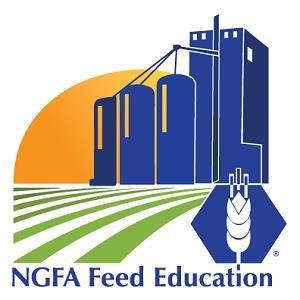
2 minute read
FEED POLICY AND SERVICES
U.S. Food and Drug Administration
Food Safety Modernization Act (FSMA)
Advertisement
Implementation: As FDA formalizes its FSMArelated expectations through inspections, NGFA continued to provide information to members on ways to enhance their compliance efforts. This included issuing guidance documents on sanitary transportation requirements and controlling the risk associated with mycotoxins. In addition, NGFA frequently interacted with FDA to discuss inspection outcomes and enforcement actions that were inconsistent with industry’s understanding of how to comply with regulatory requirements.
Claims for Animal Food Products: During an Oct. 18, 2022, public meeting, NGFA urged FDA to modernize its existing policies so that animal foods with demonstrated production, health and environmental benefits can be brought to market in a more efficient manner to address growing sustainability and climate change demands. In response to FDA-proposed legislation intended to give the agency broader authority to allow for animal food production and environmental claims, NGFA made recommendations to Congress to improve the legislation so that more products could make substantiated claims.
Animal Food Ingredient Approvals: During an FDA virtual meeting conducted on Feb. 9, 2023, NGFA expressed strong support for the agency’s role within the Association of American Feed Control Officials’ (AAFCO) feed ingredient definition process, and recommended FDA take additional steps to improve the process and facilitate ingredient approvals. NGFA also advocated within Congress for additional appropriations for FDA to fully staff its animal food ingredient review teams and address the backlog of approving critical animal food ingredients.
Association of American Feed Control Officials (AAFCO)
NGFA was active within AAFCO to advocate for reasonable model regulations that are used by most states within their feed laws, promote efficient and cost-effective processes to approve new ingredients for use in animal feed and pet food and support meaningful label requirements for animal food. NGFA also continued to interact with its affiliated state grain and feed associations to address state specific feed issues.
Education And Training
Foreign Animal Disease (FAD) Prevention
NGFA continued to engage in forums with other industry stakeholders and regulatory agencies to address the potential introduction of FADs, including African Swine Fever virus, into the United States by grain and feed products. NGFA served as a member of the Feed Biosafety Committee established by the U.S. Swine Health Improvement Plan (U.S. SHIP) that has been charged to consider recommendations for: 1) incorporating feed biosecurity standard(s) associated with feed ingredient importation; 2) next steps to reduce risk of disease transmission through domestically sourced feedstuffs; and 3) practices and standards to reduce risk of pathogen transmission through transport of swine feed and ingredients.
Feed Education/Training
NGFA offered educational/training opportunities to members on how to comply with FDA requirements in a cost-effective manner. These efforts included partnering with Kansas State University to conduct three Food Safety Preventive Controls Alliance (FSPCA) training courses that provided FDA-recognized training to individuals on how to conduct hazard analyses and develop and implement preventive controls under FSMA.
NGFA continued to lead animal food-related activities within the FSPCA, which was established to develop and deliver educational materials and training programs to assist industry in complying with FSMA-related requirements. NGFA also served as a member on Executive Advisory Board that assists in determining governance, policy and strategic direction for the FSPCA.
NGFA has a variety of feed and food safety educational and training materials that are available to its members. These resources can be found at feed.ngfa.org.





